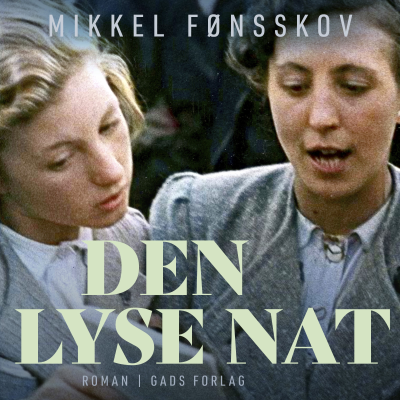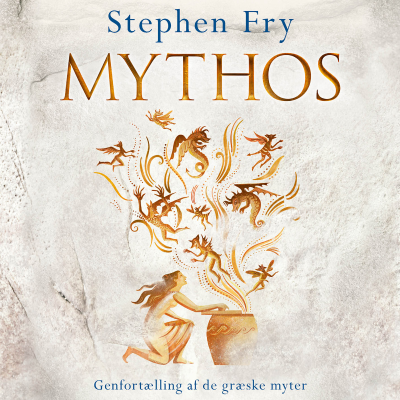
AI Breakdown
Podcast af agibreakdown
Prøv gratis i 7 dage
99 kr. / måned efter prøveperiode.Ingen binding.

Mere end 1 million lyttere
Du vil elske Podimo, og du er ikke alene
Rated 4.7 in the App Store
Læs mere AI Breakdown
The podcast where we use AI to breakdown the recent AI papers and provide simplified explanations of intricate AI topics for educational purposes. The content presented here is generated automatically by utilizing LLM and text to speech technologies. While every effort is made to ensure accuracy, any potential misrepresentations or inaccuracies are unintentional due to evolving technology. We value your feedback to enhance our podcast and provide you with the best possible learning experience.
Alle episoder
400 episoderIn this episode, we discuss Learn Globally, Speak Locally: Bridging the Gaps in Multilingual Reasoning [http://arxiv.org/pdf/2507.05418v1] by Jaedong Hwang, Kumar Tanmay, Seok-Jin Lee, Ayush Agrawal, Hamid Palangi, Kumar Ayush, Ila Fiete, Paul Pu Liang. The paper introduces GEOFACT-X, a multilingual factual reasoning benchmark with annotated reasoning traces in five languages to better evaluate language consistency in LLM reasoning. It proposes BRIDGE, a training method using supervised fine-tuning and reinforcement learning with a language-consistency reward to align model reasoning with the input language. Experiments show that BRIDGE significantly improves multilingual reasoning fidelity, highlighting the importance of reasoning-aware multilingual reinforcement learning for cross-lingual generalization.
In this episode, we discuss Position: The AI Conference Peer Review Crisis Demands Author Feedback and Reviewer Rewards [http://arxiv.org/pdf/2505.04966v1] by Jaeho Kim, Yunseok Lee, Seulki Lee. The paper addresses challenges in AI conference peer review caused by massive submission volumes and declining review quality. It proposes a bi-directional review system where authors evaluate reviewers, and reviewers receive formal accreditation to improve accountability. The paper focuses on reforming reviewer responsibility through a two-stage feedback loop and incentive mechanisms to promote sustainable, high-quality reviews.
In this episode, we discuss Working with AI: Measuring the Occupational Implications of Generative AI [http://arxiv.org/pdf/2507.07935v3] by Kiran Tomlinson, Sonia Jaffe, Will Wang, Scott Counts, Siddharth Suri. The paper analyzes 200,000 anonymized interactions between users and Microsoft Bing Copilot to understand how AI assists with various work activities. It identifies information gathering, writing, teaching, and advising as key activities supported by AI and calculates an AI applicability score across occupations. The study finds the highest AI impact on knowledge work and communication-related jobs, highlighting correlations with wage, education, and real-world AI usage patterns.
In this episode, we discuss Towards physician-centered oversight of conversational diagnostic AI [http://arxiv.org/pdf/2507.15743v1] by Elahe Vedadi, David Barrett, Natalie Harris, Ellery Wulczyn, Shashir Reddy, Roma Ruparel, Mike Schaekermann, Tim Strother, Ryutaro Tanno, Yash Sharma, Jihyeon Lee, Cían Hughes, Dylan Slack, Anil Palepu, Jan Freyberg, Khaled Saab, Valentin Liévin, Wei-Hung Weng, Tao Tu, Yun Liu, Nenad Tomasev, Kavita Kulkarni, S. Sara Mahdavi, Kelvin Guu, Joëlle Barral, Dale R. Webster, James Manyika, Avinatan Hassidim, Katherine Chou, Yossi Matias, Pushmeet Kohli, Adam Rodman, Vivek Natarajan, Alan Karthikesalingam, David Stutz. The paper proposes g-AMIE, a multi-agent AI system that performs patient history intake within safety guardrails and then presents assessments to a primary care physician (PCP) for asynchronous oversight and final decision-making. In a randomized virtual study, g-AMIE outperformed nurse practitioners, physician assistants, and PCPs in intake quality and diagnostic recommendations, while enabling more time-efficient physician oversight. This demonstrates the potential for asynchronous human-AI collaboration in diagnostic care, maintaining safety and accountability.
In this episode, we discuss Learning without training: The implicit dynamics of in-context learning [http://arxiv.org/pdf/2507.16003v1] by Benoit Dherin, Michael Munn, Hanna Mazzawi, Michael Wunder, Javier Gonzalvo. The paper investigates how Large Language Models (LLMs) can learn new patterns during inference without weight updates, a phenomenon called in-context learning. It proposes that the interaction between self-attention and MLP layers in transformer blocks enables implicit, context-dependent weight modifications. Through theoretical analysis and experiments, the authors show that this mechanism effectively produces low-rank weight updates, explaining the model's ability to learn from prompts alone.

Rated 4.7 in the App Store
Prøv gratis i 7 dage
99 kr. / måned efter prøveperiode.Ingen binding.
Eksklusive podcasts
Uden reklamer
Gratis podcasts
Lydbøger
20 timer / måned

































